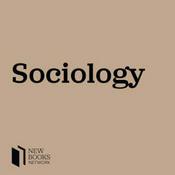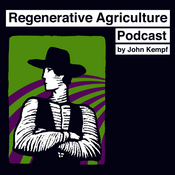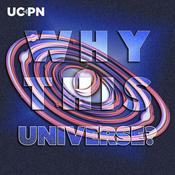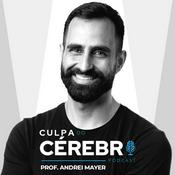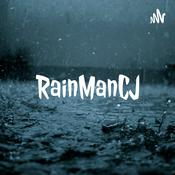32 episódios

Emerging Technologies Episode 6: Digital Twins
13/10/2025 | 33min
Welcome to Carry the Two, the podcast about how math and statistics impact the world around us from the Institute for Mathematical and Statistical Innovation. In this season of Carry the Two we are going to be examining how math and stats is helping scientists, engineers, and industry develop new and emerging technologies. This episode is all about Digital Twins. Hosts Sam Hansen and Sadie Witkowski are joined by Karen Willcox professor of aerospace engineering and engineering mechanics at the University of Texas at Austin, Director of the Oden Institute for Computational Engineering and Sciences, and external faculty member at the Santa Fe Institute and Anna Michalak founding Director of the Climate and Resilience Hub at the Carnegie Institution for Science and professor at the Stanford-Doerr School of Sustainability. Find our transcript here: Google Doc or .txt file Curious to learn more? Check out these additional links: Toward predictive digital twins: From physics-based modeling to scientific machine learning Application of Digital Twins to Large-Scale Complex Systems Digital Twins Long Program Foundational Research Gaps and Future Directions for Digital Twins Digital twins in mechanical and aerospace engineering Follow more of IMSI’s work: www.IMSI.institute, (bluesky) IMSI.institute (instagram) IMSI.institute Music by Blue Dot Sessions The Institute for Mathematical and Statistical Innovation (IMSI) is funded by NSF grant DMS-1929348

Emerging Technologies Episode 5: Computation Imaging
25/9/2025 | 46min
Welcome to Carry the Two, the podcast about how math and statistics impact the world around us from the Institute for Mathematical and Statistical Innovation. In this season of Carry the Two we are going to be examining how math and stats is helping scientists, engineers, and industry develop new and emerging technologies. This episode is all about Computation Imaging. Hosts Sam Hansen and Sadie Witkowski are joined by Rebecca Willett the Worah Family Professor of Statistics and Computer Science in the Wallman Society of Fellows at the University of Chicago, Stanley Chan Elmore Professor of Electrical and Computer Engineering and Statistics Purdue University, and David Lindell Assistant Professor at the University of Toronto in the Department of Computer Science. Find our transcript here: Google Doc or .txt file Curious to learn more? Check out these additional links: Panel Discussion: Computational Imaging: Who cares? Wavefront Estimation: How to Prescribe Glasses for your Telescope? Imaging Anytime Anywhere: Capturing Dynamic Scenes from Seconds to Picoseconds Follow more of IMSI’s work: www.IMSI.institute, (bluesky) IMSI.institute (instagram) IMSI.institute Music by Blue Dot Sessions The Institute for Mathematical and Statistical Innovation (IMSI) is funded by NSF grant DMS-1929348

Emerging Technologies Episode 4: Materials Science
11/9/2025 | 47min
Welcome to Carry the Two, the podcast about how math and statistics impact the world around us from the Institute for Mathematical and Statistical Innovation. In this season of Carry the Two we are going to be examining how math and stats is helping scientists, engineers, and industry develop new and emerging technologies. Our first episode is all about Computation Medicine. Hosts Sam Hansen and Sadie Witkowski are joined by Danny Perez, a staff scientist at Los Alamos National Lab in New Mexico, Logan Ward, a PhD computational scientist, and Jason Hattrick-Simpers, a professor of material science and engineering at the University of Toronto and a research scientist at Natural Resources Canada, CMAT Materials. Find our transcript here: Google Doc or .txt file Curious to learn more? Check out these additional links: Diverse data generation for machine learning potentials The Importance of Publishing Everything, and How MDF Can Help Understanding and Mitigating Bias in Autonomous Materials Characterization and Discovery Follow more of IMSI’s work: www.IMSI.institute, (bluesky) IMSI.institute (instagram) IMSI.institute Music by Blue Dot Sessions The Institute for Mathematical and Statistical Innovation (IMSI) is funded by NSF grant DMS-1929348

Emerging Technologies Episode 3: Fusion Energy
29/8/2025 | 36min
Welcome to Carry the Two, the podcast about how math and statistics impact the world around us from the Institute for Mathematical and Statistical Innovation. In this season of Carry the Two we are going to be examining how math and stats is helping scientists, engineers, and industry develop new and emerging technologies. Our third episode is all about Fusion Energy. Hosts Sam Hansen and Sadie Witkowski are joined by Andrew Christlieb, Professor of mathematics and computational science and engineering at Michigan State University and director for the Center of Hierarchical and Robust Modeling for Non-Equilibrium Transport, and Cristina Rea, principal research scientist here at the Plasma Science and Fusion Center at the Massachusetts Institute of Technology and leader of the Disruption Studies Group. Find our transcript here: Google Doc or .txt file Curious to learn more? Check out these additional links: Open and FAIR Fusion for Machine Learning Applications Predicting fusion ignition at the National Ignition Facility with physics-informed deep learning Follow more of IMSI’s work: www.IMSI.institute, (bluesky) IMSI.institute (instagram) IMSI.institute Music by Blue Dot Sessions The Institute for Mathematical and Statistical Innovation (IMSI) is funded by NSF grant DMS-1929348

Emerging Technologies Episode 2: Computation Medicine
14/8/2025 | 34min
Welcome to Carry the Two, the podcast about how math and statistics impact the world around us from the Institute for Mathematical and Statistical Innovation. In this season of Carry the Two we are going to be examining how math and stats is helping scientists, engineers, and industry develop new and emerging technologies. Our first episode is all about Computation Medicine. Hosts Sam Hansen and Sadie Witkowski are joined by Yixiang Deng assistant professor at the University of Delaware in Department of Computer and Information Sciences and Fides Schwartz a radiologist at the Brigham and Women's Hospital focusing on CT, computer tomography, imaging. Find our transcript here: Google Doc or .txt file Curious to learn more? Check out these additional links: Exploring the Frontiers of Computational Medicine Photon-counting CT yields superior abdominopelvic image quality at lower radiation and iodinated contrast doses Follow more of IMSI’s work: www.IMSI.institute, (bluesky) IMSI.institute (instagram) IMSI.institute Music by Blue Dot Sessions The Institute for Mathematical and Statistical Innovation (IMSI) is funded by NSF grant DMS-1929348
Mais podcasts de Ciência
Podcasts em tendência em Ciência
Sobre Carry the Two
Ouve Carry the Two, The Rest Is Science e muitos outros podcasts de todo o mundo com a aplicação radio.pt
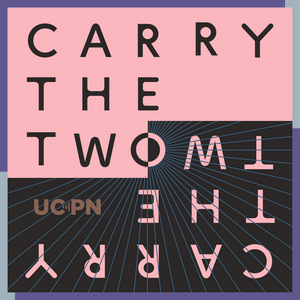
Obtenha a aplicação gratuita radio.pt
- Guardar rádios e podcasts favoritos
- Transmissão via Wi-Fi ou Bluetooth
- Carplay & Android Audo compatìvel
- E ainda mais funções
Obtenha a aplicação gratuita radio.pt
- Guardar rádios e podcasts favoritos
- Transmissão via Wi-Fi ou Bluetooth
- Carplay & Android Audo compatìvel
- E ainda mais funções


Carry the Two
descarregue a aplicação,
ouça.











